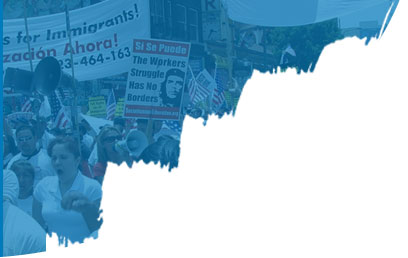
World Day Against Trafficking in Persons
Since 2014, when it was proclaimed by the General Assembly of the U.N., July 30 has been World Day Against Trafficking in Persons. It is dedicated to bringing greater awareness of trafficking and strengthening global partnerships in combating it, as well as providing individuals with tools to aid prevention efforts and assist survivors.
This year, the Day’s theme was the “use and abuse of technology,” and covered the myriad ways in which both victims and buyers are solicited online. While the problem has been exacerbated by the COVID-19 pandemic, experts point out that the internet has long been an instrument and a haven for traffickers around the world.
According to the Human Trafficking Institute, since the year 2000, 55% of victims were recruited online, be it social media, job boards, chat rooms and dating apps. This is what happened to Shandra Woworuntu, survivor and founder of Mentari Human Trafficking Survivor Empowerment Program, an organization that helps survivors “actively reintegrate into society.” In 2001, Woworuntu, then twenty-five, was lured to Chicago from her native Indonesia with the promise of employment. She had recently lost her job at a bank and was eager to start a new life. Instead, traffickers intercepted her at JFK Airport and brought her to a Brooklyn brothel, where along with other women she was raped, beaten, and forced into prostitution. Incredibly, she managed to keep a journal of what was happening to her before eventually escaping through a window. Only another survivor can understand how terrified she must have been – lost, alone, and without her passport, which had been stolen by the traffickers, in New York City. She also did not speak English, yet she led authorities to the location of the brothel, resulting in the arrest of her kidnappers and the rescue of the other victims. She credits the FBI, NYPD, and Homeland Security with helping her secure food and shelter and enrolling her in English language classes; most importantly, she said, agents made her feel safe for the first time since leaving Indonesia.
Coincidentally, on July 28, Ghislane Maxwell, notorious “procurer” for Jeffrey Epstein, was sentenced to twenty years for sex trafficking. Wealthy and connected with some of the most influential people on the planet, Maxwell and Epstein couldn’t appear more different from those who trafficked Shandra Woworuntu. They also didn’t violently kidnap their victims, but recruited and groomed them with promises of a modeling career and cash. Beneath the surface, however, they have the same callous disregard for human life; moreover, these stories demonstrate the many faces of this crime, and the need for comprehensive education programs so at-risk persons can protect themselves. There is also a growing movement within the antitrafficking community to include survivors in prevention and trauma-informed assistance for others. Woworuntu is a strong advocate for this; she also urges victims from other countries to reach out to law enforcement for help without fear of being punished or deported.
